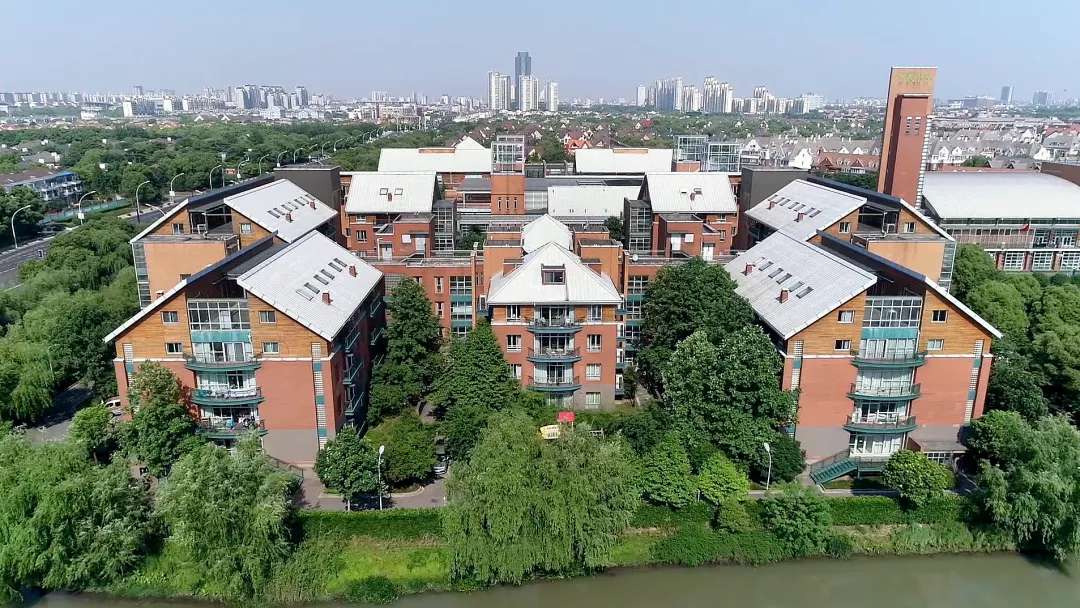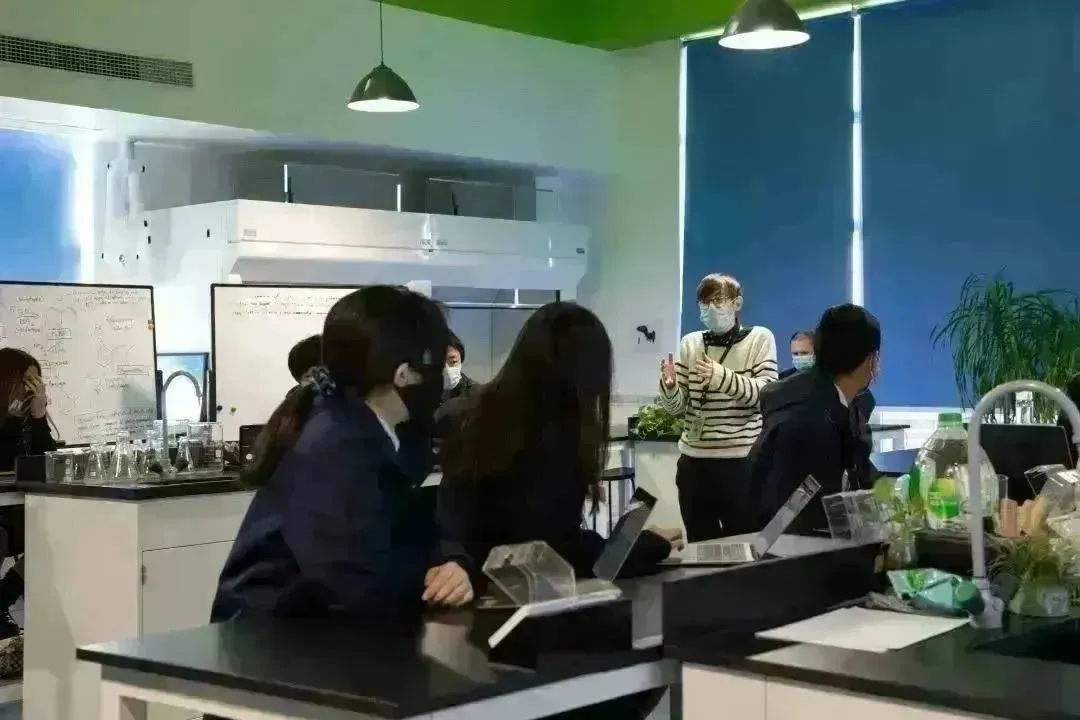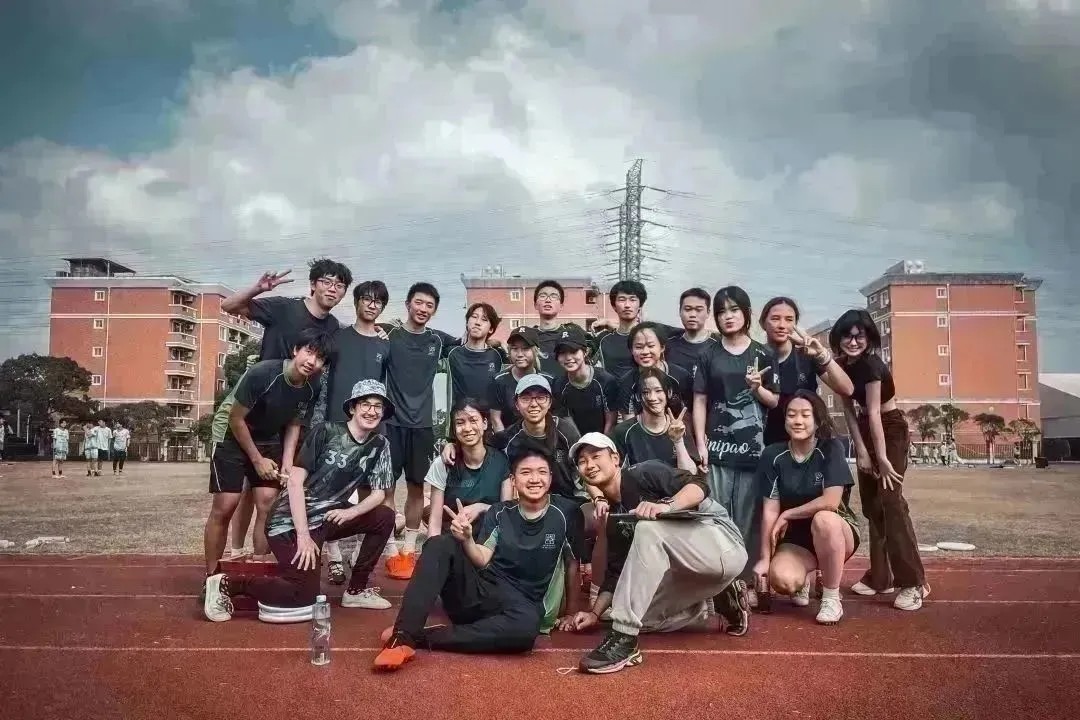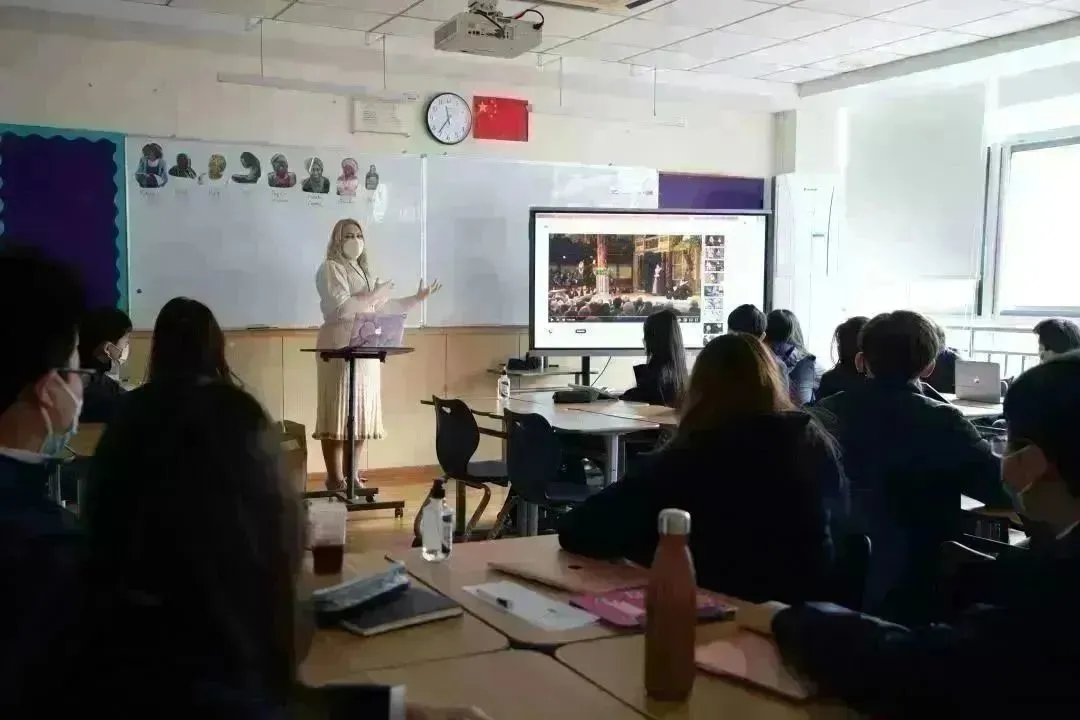
As a Chinese school with an international outlook, Pao School always strives to provide as many international experiences as possible for students – with the ultimate hope of allowing them to act as representatives of China in global contexts. This education comes in many forms, such as in in-classroom learning and through CCAs, international students learning alongside Chinese peers, language learning, and in the development of students’ cross-cultural communication skills. In particular, one key resource for students is the teachers themselves, with the strong presence of faculty coming from overseas.
International Teaching Fellows are a key part of this endeavour and have been a part of the school since it first opened its doors. The Fellows, who are recent graduates, perform a variety of roles at the school, using their expertise to provide a unique perspective to the students, such as through teaching and supporting teaching in classes, leading CCAs and activities and giving special talks or lectures. In turn, as they are early in their career, the experience allows the Fellows to develop skills in their area of interest within education under the supervision of Pao School teachers.
Lawson Kosulic
Chicago, USA
Physics and Philosophy, Double Major (MIT)
Coming to YK Pao School was an opportunity to explore teaching, embrace a new country, and learn things across the board. At the same time as getting to enjoy the pleasures and successes of teaching, I get to live and experience the wonderful traditions and culture and amazing food that exists here in China. I’m challenging myself to push my beliefs and boundaries. Only by being an international teaching fellow am I able to explore this at the same time in a part of my life where I'm figuring out what I want to do in the future.

Lawson, originally from Chicago, joined YK Pao School in 2022 as an International Teaching Fellow. As part of his role, he now supports teaching for introductory physics classes. In addition, he helps with CCAs, such as football, and supervises night duty for the boarders.
Pushing the Boundaries
One of the main things that he appreciates about the school is the way in which it strives to improve teaching and learning, alongside other aspects about the school such as boarding and co-curricular offerings. “All decisions at Pao School are made with the thought about how it impacts student safety, wellbeing, and learning. It's about how can we still follow those expectations of the curriculum, but better support the students. They're always at the centre of the conversation, and that's something that I think was so attractive to me about Pao School,” says Lawson.
He has been particularly impressed by how the school is always willing to take action and how teachers are encouraged to give feedback on how to improve the school. “That push for constantly being better was something that I appreciated about past experiences as a student at MIT – that desire to always be pushing the boundaries of what we're doing,” explains Lawson.

Throughout the week, Lawson also spends a lot of time on self-development, with time set aside to observe full-time teachers and learn more about what teaching looks like in different classrooms. He explains that his colleagues are always happy to help him develop lesson plans and explain how to access certain resources for his own development. In addition, he also has access to a wealth of online lessons to develop his teaching skills.
Sense of Victory
Although Lawson is trained as a physicist, he explains that he was particularly drawn to learning more about teaching as he finds it fulfilling to communicate with others and to see the students make their own breakthroughs. Furthermore, for him, he places particular value on teaching the next generation and making progress as a society. In this way, his experience as a Fellow has been both rewarding and educational as he develops the skills he needs to be able to share his own knowledge. Though working at Pao School was his first experience teaching full-time, he first gained experience in the field as a TA during his freshman college year and as a summer science school teaching assistant. After graduating from MIT, he was also a substitute teacher five days a week at a public high school in Cambridge, MA.

“When the student feels victorious, you also feel in some sense victorious because you know they were struggling with that concept. Now they're doing well, and they're excited about it, so I also feel excited because look the students’ hard work paid off,” he explains. Alongside supporting students in learning new concepts, or learning how to use English to explain their ideas, Lawson has enjoyed learning how to manage the feel of a class. Sometimes, the students are tired or lack energy, so the teacher must learn how to deliver a lesson in a way that inspires the students. For example, Lawson recently taught a physics class where the students were tired, but he found that they were deeply interested in an experiment that he was showing them. Adapting to the moment, he used his knowledge of other experiments he was familiar with to expand on the students’ familiarity with the concepts and hold their interest.
These moments of victory come inside and outside the classroom. For example, Lawson was touched by students’ excitement seeing him when he went to support the school’s Ultimate Frisbee team at a tournament. For him, it is deeply rewarding to be able to experience little moments of gratitude or joy with the students during their moments of triumph and know that he has played a part in the journey.

A New Perspective
Alongside developing his teaching skills, Lawson was drawn to China as a way to open up his mind and learn more about the world. “It's much easier to learn about other cultures by understanding through experience, rather than through watching a video or learning from elsewhere,” Lawson explains, who feels that as someone who enjoys philosophy, he has embraced the opportunity to broaden his experiences and learn about the world from a different perspective. As he has only ‘experienced life in half the world,’ living in China allows him to learn about a different set of values and how to view society. “Different people can bring different perspectives, learning about them allows you to communicate in a way that makes you question and makes you think about things more deeply. I think it's really valuable. Unless you take that leap and try to immerse yourself and experience those perspectives more wholly, I think you're missing out on something.”
Isabelle Wilson
Cambridge, UK
Chinese Language, Oxford University
Pao School has a really supportive, caring and joyous environment. And I really, truly believe that I've made the best friends here, we just have such a wonderful community, and I think this is true for a lot of students as well.
Isabelle currently works as an English teacher, having first joined the school in 2021 as an International Teaching Fellow. During her time as an International Teaching Fellow, she led one class of Year 9s alongside completing various staff development courses. In addition, she led the Baking CCA, wrote the school’s Daily Bulletin, and also looked after her own tutor group. It was during this time that she refined skills such as lesson planning and learning how to mark student work.

“When I came to Pao School, I knew I loved China, but didn’t know if I liked teaching,” says Isabelle – who partially chose to be an International Teaching Fellow to explore life as an educator. In her first year at the school, she spent much of her time learning from other educators at the school and completing iGCSE teacher training courses to develop the skills necessary for teaching. Over time she has grown to love the work, as it is highly creative and rewarding in a different way from most professions. In addition, she finds talking to the students and learning about their opinions on books ‘endlessly fascinating’. As a person, she has learned more about communication and become more confident speaking in front of others. Further, her perspective on life has changed, allowing her to adapt more of a Chinese attitude towards life - such as being less 'uptight' and more flexible when approaching a challenge.
A Love for Chinese
Isabelle first started learning Chinese when she was 11 years old, as part of a club at her school, and continued learning throughout her school years. Alongside learning Chinese at school, Isabelle had family members living in Hong Kong at the time. Through stories and photos, the seeds of curiosity were planted, which led to a transformative week-long visit when she was 16 years old. During her visit, which took place during Chinese New Year, she became ‘completely obsessed’ with Chinese culture after seeing the celebrations – including lion dances and ceremonies at the temple – and eating local dishes such as dumplings. It was from then on that she became resolved to study Chinese at university, with the hope of one day returning to China.

Her interest in the Chinese language eventually led her to study BA Chinese at Oxford. At Oxford, though she was studying the language, she says that she also explored Chinese literature and history. In particular, she became fascinated with learning classical Chinese, such as Pu Songling’s ghost stories and diaries by the Song Dynasty poet Su Shi, which she says helps her have a deeper understanding of Chinese characters. The course itself was very challenging, with targeted classes on pronunciation, vocabulary, and grammar – with students learning around 100 words a week. Despite this, Isabelle says that when she graduated, she was still uncertain in her speaking, “My spoken Chinese was still kind of brewing at the time. It took me a few months of being here, then my level of my ability just shot up – that's really the main reason why I just need to be in China.” Su Shi’s diaries.
An Affinity for Education
During her studies of the Chinese language, Isabelle spent a year living in Beijing studying at Peking University. So, when she was deciding to return to China after completing her degree, she decided that she wanted to see the ‘other main centre’ of the country and come to Shanghai. As she comes from a family of educators and had worked as a tutor in the past, alongside a role in administration for a language school, she felt attracted to teaching - which influenced her decision to find a workplace that would cultivate the skills she needs for her career in the future.
“It was an unmissable offer,” says Isabelle, who was excited by the opportunity to train by observing Pao School’s teaching staff. She was also attracted to the school’s holistic environment, as the job goes beyond the classroom into activities such as the Baking CCA that Isabelle leads. In addition, the school’s environment was deeply attractive, she says, “I could tell that I was being given a home here. You get colleagues who are all really close, we do these amazing cultural trips together and I love that we get to do things like go out and all have a meal together.”

Though she teaches English, Isabelle feels that her Chinese language skills place her in a unique position as a teacher and support her in helping students learn English. As she is familiar with differences in the languages, it is easy for her to understand why certain grammar is confusing for students and can explain these distinctions more easily.
“It also enhances a lot of the discussions we have in class,” says Isabelle. As, in English class, the students frequently need to talk about complex topics such as society and identity, her deep understanding of Chinese culture and society allows her to relate to the students’ perspectives more deeply, alongside sharing her perspective as a foreigner. “I can talk about problems in a way that resonates with them more. We can meet in the middle and talk about subjects from a place of understanding each other.”